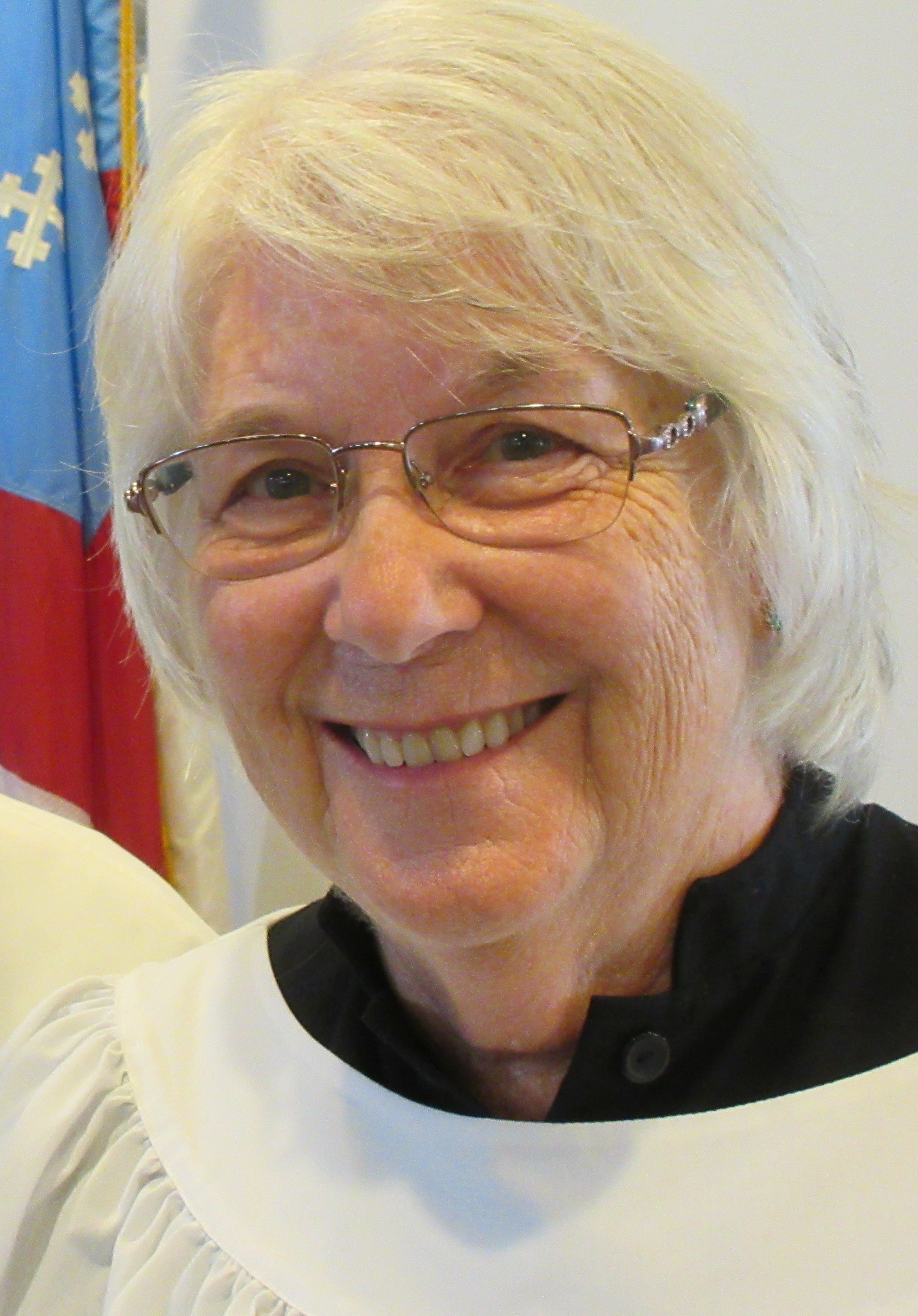Saints who have inspired us

Sunday Sermon
Barbara Metcalfe
Licensed lay preacher
Nov. 3, 2019
There is so much excitement at St. Paul’s today—celebrating Fr. Tom’s first year, and looking forward to a visit to the rectory! But today is the time of year when we remember the saints, and I’m sure each of you has someone in mind today. I’m remembering my father—a decorated veteran of World War II and Korea, and a singer with a golden baritone voice. Unfortunately, the gift of music was not inherited by his only daughter. I remember when he was stationed in Yokohama during the occupation after the war (I of course was VERY young) and he did so much to help the Japanese people around us who were suffering with poverty and loss. I’m sure now he’s singing with the angels—in fact, probably leading the choir. He is surely one of the saints.
So today we remember all those saints who have been part of our lives or whose stories have inspired us.
Apparently back in the middle ages, so many saints were canonized—some just because they’d been generous donors to the church—that it became impossible to remember them all by name, so the idea of a holiday called “All Saints” became a practical necessity.
But just what is a saint?
Daniel today gave us a preview of the saints from about 169 BC. Like most of his visions, it’s pretty wild, and today we read about the troubled sea and the four beasts rising from it. And what is our hope in these turbulent times? The holy ones! It is they who will possess the kingdom.
But Jesus makes it clear in His sermon to his followers just how we can recognize a saint. And what an upheaval of every value the dreaded Roman empire embodied! As Jesus so often does, he turns upside-down the notion of who is blessed—not the powerful, not the conquerors, not the rich, but those who are suffering on the fringes of society. The poor! The hungry! Those who weep! We can only imagine how the people on the hillside who had gathered to hear him must have responded to his words.
Following this savior, this prophet, this holy one, will not make you one with the rich and powerful. No, it will involve being hated, reviled, excluded, and defamed! But your reward is great in heaven. We are so used to these words, which we’ve all heard so many times, that we need to remind ourselves what an upheaval of the society’s values they were.
One part of it must make all of us a little itchy. Woe to the rich? Those who are full? Those who are laughing? Compared to most of the world, I’m rich, even though I might complain that my used Chevrolet doesn’t compare to my friend’s Cadillac. And it’s clear that I’m well fed. And yes, for most of life, I’m laughing.
I think the woe Jesus speaks of comes only to those who take their blessings and hoard them. It is easy to focus only on ourselves and our advancement when Jesus makes it clear that we need to give to those who beg from us, to love our enemies, and if others take our goods from us, to leave them there.
Again, it’s hard to realize how revolutionary Jesus’ words were, because now His advice to do unto others as you would have them do to you is seen everywhere (if not always observed). But in a power-based world like the Roman Empire, it was exactly that: revolutionary.
If that’s what it takes to aspire to sainthood, we fall short, don’t we? That sarcastic writer, Ambrose Bierce, says a saint is a “dead sinner, revised and edited.” There is so much more we could do for the needy, for the hungry, and for the lonely. But we don’t. So is the hope of sainthood beyond us?
I think the solution comes every Sunday when we come to the communion rail, take in the body and blood of our Savior, and once again renew our commitment to be those people who comfort the lonely and give to the poor. It’s only with Christ working in us that we have a chance to escape the “woe” that we often deserve, and become those who do unto others.
I think the Holy Spirit made it possible for my father to give so generously of himself to the Japanese people who had so recently been our enemies.
So today, of all days, let us cherish the memory of the saints who have inspired us, and renew our commitment to Jesus Christ and all His topsy-turvy rules for how to relate to others who have needs. He is sure to hear our prayer and enable us to look heavenward in trials and tribulations, and become those holy ones Daniel saw as the hope of humankind.
SUPPORT ST. PAUL'S DONATE NOW OR RECURRING DONATION

3901 Davis Blvd., Naples, Florida 34104 239-643-0197 Office hours 9 a.m. to 1 p.m. Monday-Friday


